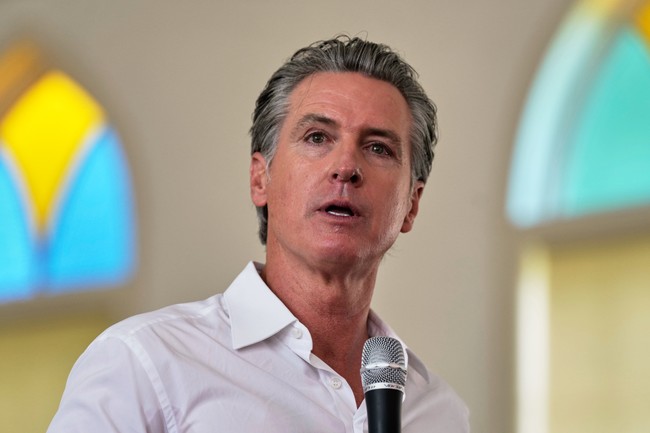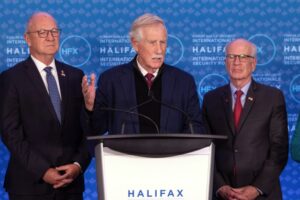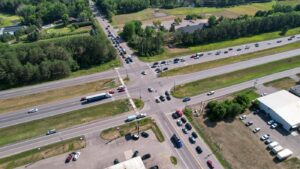
California Governor Gavin Newsom recently announced a controversial plan to redraw congressional district maps, claiming it would help “end the Trump presidency.” This announcement has sparked significant backlash among voters, as a new POLITICO poll reveals that a majority of Californians oppose the plan and prefer maintaining the state’s independent redistricting commission.
In a series of emphatic social media posts, Newsom stated that the redistricting initiative would allow the Democratic Party to secure additional seats in the U.S. House of Representatives. He described the effort as a necessary response to what he perceives as gerrymandering by Texas Republicans under the influence of Donald Trump. However, the feasibility of implementing such changes before the upcoming March deadlines appears limited. The process would require dissolving California’s independent redistricting panel, a move that voters overwhelmingly oppose.
According to the POLITICO-Citrin Center-Possibility Lab survey, approximately 64% of respondents support keeping the independent commission, while only 36% favor returning redistricting authority to state lawmakers. Jack Citrin, a political science professor at the University of California, Berkeley, noted that Californian voters have previously expressed their distrust of politicians, having voted twice to establish the independent commission. He emphasized that this mistrust is likely reflected in the current poll results.
Political Landscape and Public Sentiment
Newsom’s plan is part of a broader strategy among California Democrats to counteract the Republican-led redistricting efforts in other states. California officials are expected to unveil the newly proposed maps by the end of this week, which could potentially add five Democratic seats, offsetting losses due to Republican redistricting in states like Texas.
Despite the strategic intentions behind the plan, the public response has been skeptical. Many voters see Newsom’s proposal as a self-serving political maneuver rather than a genuine effort to enhance democracy. The poll results indicate a significant disconnect between the governor’s intentions and public sentiment, raising questions about the viability of his redistricting strategy.
Former California Governor Arnold Schwarzenegger has expressed his opposition to Newsom’s approach, indicating that he intends to challenge any efforts to bypass the established redistricting process. This pushback underscores the ongoing debate over gerrymandering and electoral fairness as it continues to resonate deeply within California’s political landscape.
The upcoming months will be critical for Newsom as he navigates the complexities of redistricting while addressing the growing discontent among voters. With the clock ticking toward major electoral deadlines, the governor’s ability to respond to public concerns will play a pivotal role in shaping the future of California’s congressional districts.
In light of the poll results and the political uncertainties surrounding the proposed changes, Newsom may need to reconsider his strategy. As California heads toward significant elections, the emphasis on transparency and public trust will be essential for any effective governance moving forward.







